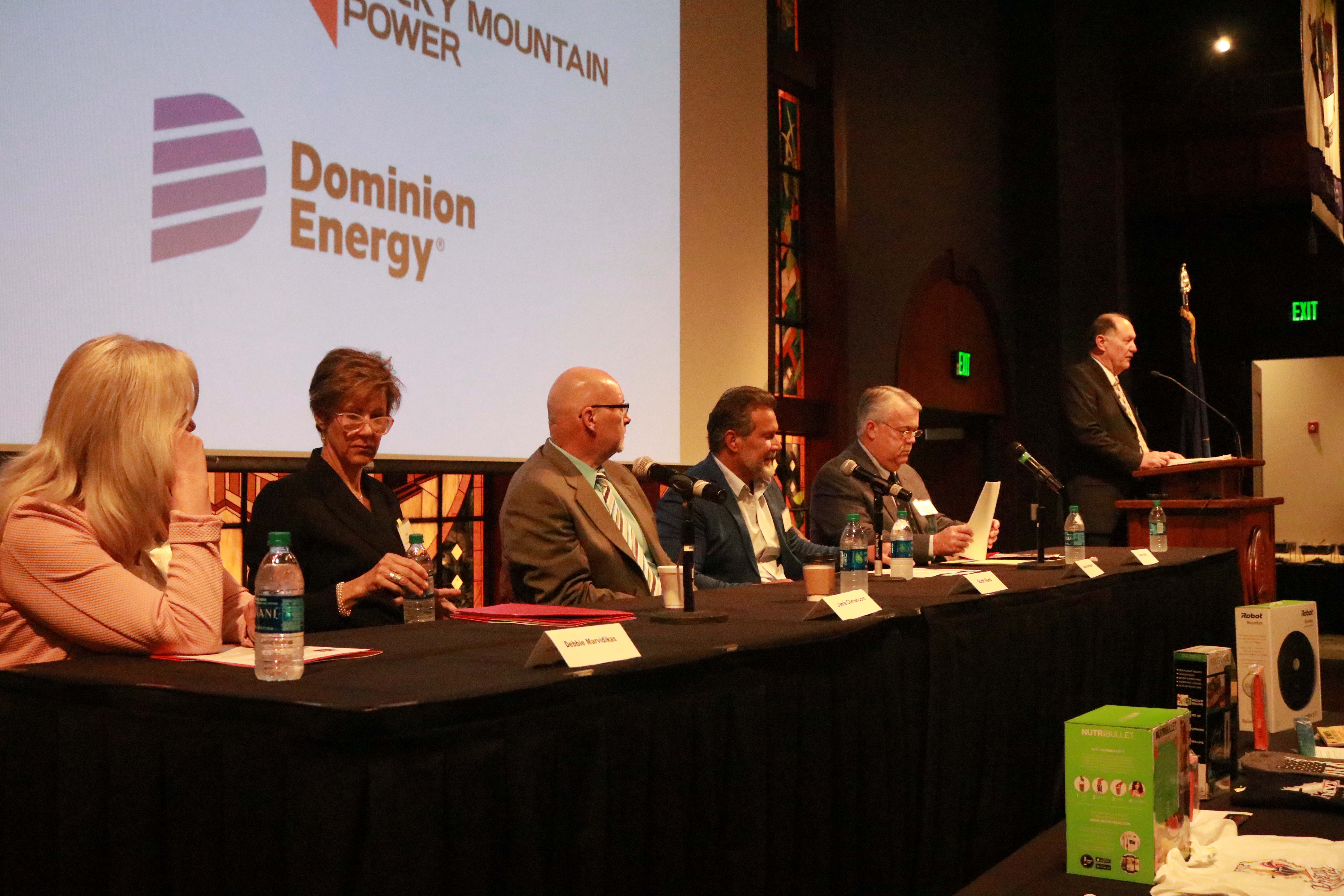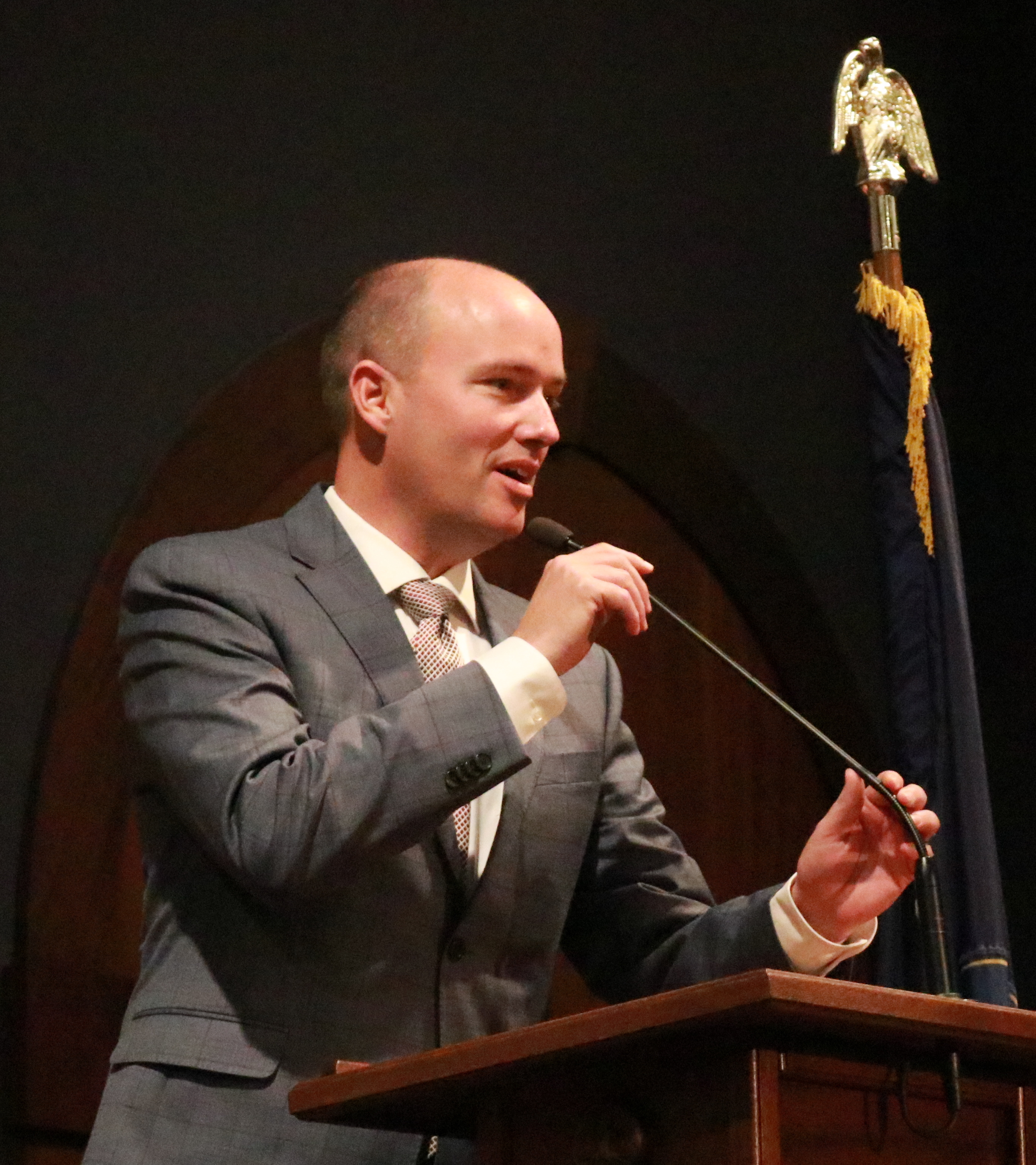
CEDAR CITY — With Utah and other western states experiencing yet another devastating wildfire season, Utah Gov. Gary Herbert said he believes the state can do a better job of managing its own forests and that he plans to petition the federal government to allow that to happen.
During his remarks at the recent Utah Rural Summit at Southern Utah University, Herbert said the state has seen 871 wildfires so far this year, which have collectively burned more than 126,000 acres.

“We get, on average, about 15 calls a day of a fire being started somewhere,” Herbert told the audience at the conference, adding that 60 percent are human-caused. “That means they’re preventable,” he said, noting that the human-caused fires are responsible for approximately 108,000 of the acres burned, while lightning-caused fires have charred just over 17,000 acres.
The economic costs are high as well; the costs of fighting this season’s fires so far has exceeded $40 million, Herbert said.
Herbert said poorly managed forests can lead to large swaths of standing dead trees, creating hazardous conditions.
“It’s a tinderbox,” he said. “This is a fire waiting to happen.”
Better management techniques such as targeted prescribed burns and the harvesting of dead trees could help mitigate the problem, the governor said, but added that Utah’s hands are often tied due to federal regulations, leaving a sizable percentage of its forest lands essentially unmanageable.
One particular set of Forest Service regulations is commonly known as the “Roadless Rule.” Although the rule is intended to protect forests, Herbert said it has led to overgrown and unhealthy forests filled with dead trees.
Noting that neighboring states such as Idaho and Colorado have already enacted state-specific modifications to federal roadless rules, Herbert said it’s time for Utah to petition the U.S. Forest Service for a new Utah-specific roadless rule.
“It is time for us to be aggressive and proactive and say we can, with cooperation, do a better job managing these forests we have,” he said, adding, “Our forest managers, would have … the tools and the flexibility they need to improve the health of our forests and thereby reduce our forest fire risk.”
Herbert said there is no hidden agenda behind the proposed petition.

“This is not some kind of a backdoor approach to creating more ATV trails out there.” he said. “We’re trying to create healthier forests.”
Herbert invited those with differing points of view to bring them forward.
“We want to hear them,” he said, noting that input will be solicited from various stakeholders over the next few months as plans are considered.
Later in the day, Herbert sent out a series of tweets encouraging Utahns to get behind the initiative. Herbert said he hopes a workable petition will be ready submit to U.S. Department of Agriculture officials by the end of December.
Gov. Herbert’s remarks kicked off the two-day Utah Rural Summit, which attracted hundreds of participants. Other keynote speakers at the conference included Doug Griffiths, Sarah Calhoun, John Reuter, Alema Harrington and Clint Betts. Panel discussions and breakout sessions were held on a variety of topics, including the rural opioid addiction crisis, attracting business and jobs in rural areas and issues related to health care, housing, legislation, public lands and natural resources.

Lt. Gov. Spencer Cox, during his brief remarks before introducing Herbert, mentioned some of the challenges faced by those in rural communities.
“We do have higher rates of opioid addiction in rural Utah. We do have higher rates of intergenerational poverty in rural Utah. We do have higher suicide rates in rural Utah. And I believe that all of those things are directly and somewhat indirectly related to economic circumstances,” Cox said, adding, “When we lose hope, when we can’t find a way out, when we’re in a dark place, we tend to turn to other things.”
“I was told by someone much smarter than me that the opposite of addiction is not sobriety,” Cox said. “The opposite of addiction is connection, and we’re losing too many of those connections.”
Email: [email protected]
Twitter: @STGnews
Copyright St. George News, SaintGeorgeUtah.com LLC, 2018, all rights reserved.
A bit frightening when a politician uses common sense.
We learned in the Yellowstone fires of 1988 what we were doing wrong with our forests.
Sadly, we continued to allow those people with their causes dictate bad policy.
It’s time to do this properly. Thank you Gov. Herbert.